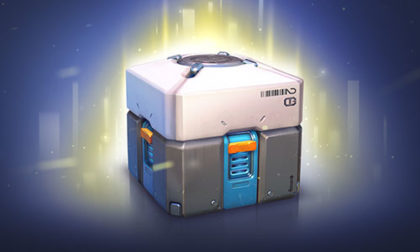ESRB to Label Video Games Containing Loot Boxes and In-Game Purchases
This is a poker news site. As such, I am once again going to write about video game microtransactions and loot boxes. Hey, poker is gambling and loot boxes are tangentially related to gambling, so it all works, right? And while I have written plenty on the subject of late, there was fairly big news Tuesday as the Entertainment Software Rating Board (ESRB), the organization that puts those age ratings on video games, announced that it will start putting an “In-Game Purchases” label on physical video game packaging, with similar labels to come for downloadable games.
Anyone who has played video games – especially mobile games and free-to-play games – in the past few years should be very familiar with in-game purchases. Many games encourage players to buy items that can help them in the game, items that are purely cosmetic, in-game currency, additional gameplay time (for many free-to-play games), and more. Many of these purchases amount to a dollar or less, though individual purchases can reach into the hundreds of dollars. Over time, even “microtransactions” can add-up.
And while real-money online poker is a different thing from video games and therefore has nothing to do with the ESRB’s announcement, it will be interesting to see if the new game label affects play-money poker at all. Zynga Poker is the most popular “social” online poker game in the industry; people can play via mobile apps and on Facebook. It is completely free to play, but when I tested my skill at the tables on Facebook, I was bombarded with banners and buttons and messages galore, all encouraging me to pay for chips and virtual trinkets with real money. It looked like an early poker boom affiliate banner farm. Hell, I’m as internet savvy as they come and even I clicked on something that I thought was a regular game feature that turned out to be a real-money purchase offer.

See? It’s a llama piñata.
Image credit: fortnite.wikia.com
The ESRB’s decision was likely spurred on by the increasing prevalence of loot boxes in video games. Loot boxes come in different forms depending on the game (in Fortnite, they are actually llama piñatas), but they are all basically the same in application: boxes filled with mystery items for use in the game.
Gamers know what sort of items could be in the loot boxes, but they don’t usually know exactly what will be enclosed. The hope is that the item is very helpful or extremely rare (and perhaps valuable for resale in-game, if such a feature is available), but the items are usually common and even if useful, fairly unexciting for the player.
In some games, loot box items are purely cosmetic and have no effect on the game – they might be a character costume, for instance – while in other games, loot box items could give a benefit to the player such as a powerful weapon or a special ability that gives them an advantage against other players. Personally, as a gamer myself, I don’t mind the former and loathe the latter.
Again, depending on the game, loot boxes can be earned through gameplay, can be purchased with in-game currency, or can be purchased with real money (or, combining these, can be purchased with in-game currency that can be bought with real money).
I write about this not just because I play games that have loot boxes, but also because many people (including myself) see them as gambling. Now, I have never bought a loot box – I only open ones I earn through my regular game play – but think about what happens with people who do purchase them. They spend money, hoping to win the items that they desire or have some sort of significant in-game value. It’s very much like playing the slots. Last year, the ESRB said that loot boxes were not gambling because players always receive something (whereas in slots you often win absolutely nothing) and the items have no real-world monetary value. But honestly, to me that’s just a technicality. Loot boxes, when purchased with real money or in-game currency that itself is purchased with real money, are gambling. You are spending money without knowing what you will get or if it will be worthwhile. And people do get addicted to this mechanism.
Because I am a gamer, I am well-versed in loot boxes and in-game transactions and have educated my kids on the matter. They know not to try to buy anything without my permission (I also turn off in-game purchasing or make sure there is no credit card info stored whenever possible). But many parents know nothing about these things. Thus, prominent labels warning that the games have in-game purchases available are a good first step.
In the announcement, ESRB president Patricia Vance said:
The video game industry is evolving and innovating continually, as is the ESRB rating system. ESRB’s goal is to ensure that parents have the most up-to-date and comprehensive tools at their disposal to help them decide which games are appropriate for their children. With the new In-Game Purchases interactive element coming to physical games, parents will know when a game contains offers for players to purchase additional content. Moreover, we will be expanding our efforts to educate parents about the controls currently at their disposal to manage in-game spending before their kids press ‘Start’.
The ESRB has also setup a website, ParentalTools.org, to help educate parents on in-game purchases and how to activate parental controls on different gaming platforms.
Cover image credit: us.battle.net



















COMMENTS